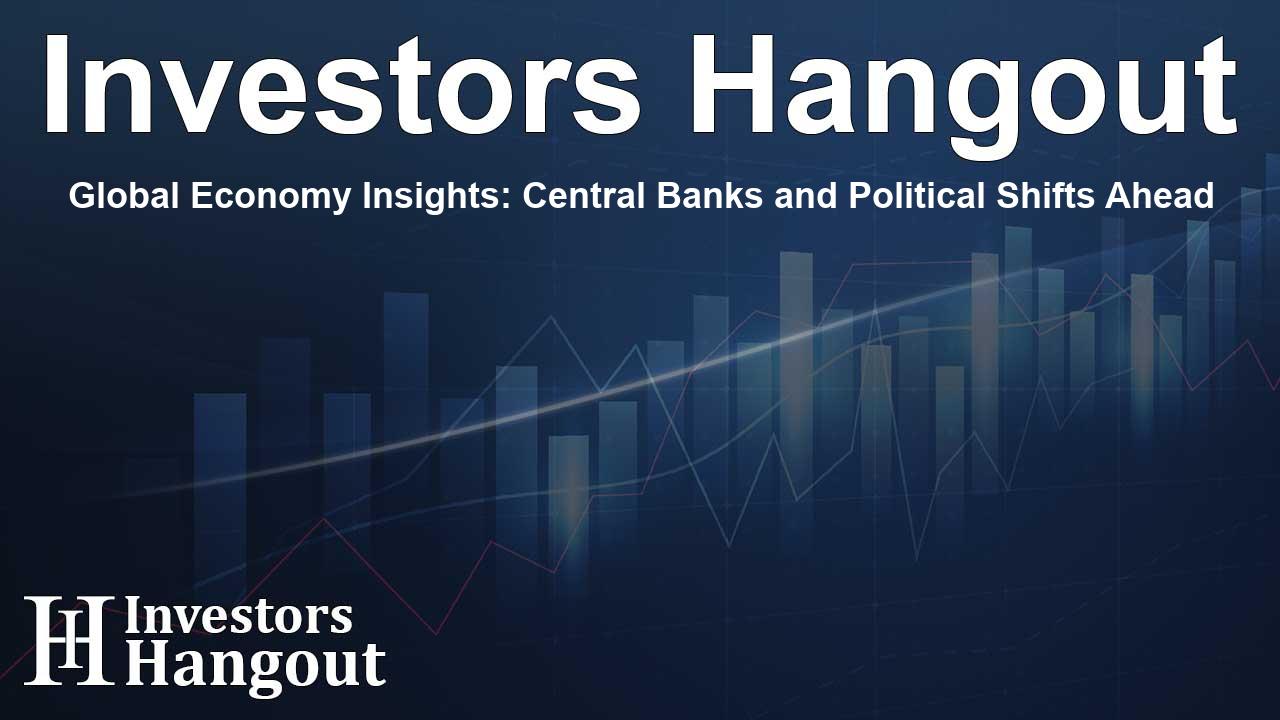Global Economy Insights: Central Banks and Political Shifts Ahead

Central Banks' Roles in Shaping Economic Futures
With attention focused on the economic landscape, many anticipate new measures from central banks in Switzerland and Sweden as they prepare for key policy meetings. Recent moves by the Federal Reserve have set the stage for these forthcoming changes, as markets adapt to new inflationary pressures and business activity trends worldwide.
Interest Rates and Economic Strategy
Switzerland's and Sweden's central banks are gearing up for possible rate cuts that could significantly influence economic forecasts for 2024. In a landscape often referred to as the 'Great Rate-Cutting Race', both institutions might implement front-loaded cuts which could leave limited room for adjustments in 2025.
The Swiss National Bank made headlines earlier this year by cutting rates, responding to the evolving economic pressures. As the Swiss franc reaches its highest valuation since 2015, there is debate on the scale of potential cuts, especially given the current inflation trends that are not aligning with economic projections.
On the other hand, the Riksbank in Sweden is on the verge of announcing a 25 basis point reduction. The country's inflation statistics have prompted a reconsideration of their monetary policy, suggesting that further cuts might be on the horizon.
Inflation Indicators and Economic Outlook
Investors are keenly awaiting the upcoming release of the Fed's preferred inflation measure, which will shed light on whether inflation pressures continue to decline. According to market projections, the personal consumption expenditures index will likely show a slight increase year-over-year. Analysts expect the Fed's revised economic outlook to predict further easing of inflation rates over the coming years, including a target of 2.3% by the end of the current year.
As anticipation builds, figures revealing consumer confidence and durable goods orders are also slated for release. How these numbers align will provide additional insight into market health and consumer activity.
Global Economic Stability and Recession Risks
Flash business activity surveys are poised to highlight the health of the global economy in the upcoming week. Data from Europe signals a positive trend, as the composite Purchasing Managers Index indicates continued growth in several sectors. This could be crucial for markets as they assess the potential for recessionary pressures.
Despite some optimism, challenges remain. Germany's recent PMI reports show contractions, reflecting a tough economic climate. Similarly, the ongoing struggles in China's economy present additional concerns that could ripple through global markets.
Political Dynamics Influencing Economic Policy
Shifting our focus to Asia, Japan's ruling party is set to elect a new leader, which directly impacts the nation's prime ministership. The political landscape is dynamic, with a range of candidates holding varying perspectives on economic policy. The outcome of this leadership race could significantly influence Japan's monetary strategy, particularly with upcoming elections on the horizon.
In Sri Lanka, voters are also heading to the polls, facing a critical decision in a country still recovering from economic turmoil. The presidential election highlights public concerns about economic management and the potential for further instability as citizens weigh the pros and cons of candidates pledging to renegotiate international bailout terms.
Frequently Asked Questions
What are the expected changes from Switzerland and Sweden's central banks?
Both banks are likely to announce interest rate cuts, aiming to adjust financial strategies in response to evolving economic conditions.
How might these rate cuts affect the global economy?
Rate reductions can stimulate economic growth but may also lead to inflationary pressures if not managed carefully.
What significance does the upcoming inflation data hold?
The inflation measures are crucial for setting future monetary policy directions and assessing the health of consumer spending.
Why is the political situation in Japan relevant to its economic policy?
The choice of a new prime minister can reshape the country's economic strategies, particularly regarding monetary policy and fiscal approaches.
How do external economies, like China, impact global markets?
China's economic performance is key; struggles there can create cascading effects that influence other economies, highlighting interdependence in the global marketplace.
About The Author
Contact Olivia Taylor privately here. Or send an email with ATTN: Olivia Taylor as the subject to contact@investorshangout.com.
About Investors Hangout
Investors Hangout is a leading online stock forum for financial discussion and learning, offering a wide range of free tools and resources. It draws in traders of all levels, who exchange market knowledge, investigate trading tactics, and keep an eye on industry developments in real time. Featuring financial articles, stock message boards, quotes, charts, company profiles, and live news updates. Through cooperative learning and a wealth of informational resources, it helps users from novices creating their first portfolios to experts honing their techniques. Join Investors Hangout today: https://investorshangout.com/
The content of this article is based on factual, publicly available information and does not represent legal, financial, or investment advice. Investors Hangout does not offer financial advice, and the author is not a licensed financial advisor. Consult a qualified advisor before making any financial or investment decisions based on this article. This article should not be considered advice to purchase, sell, or hold any securities or other investments. If any of the material provided here is inaccurate, please contact us for corrections.
